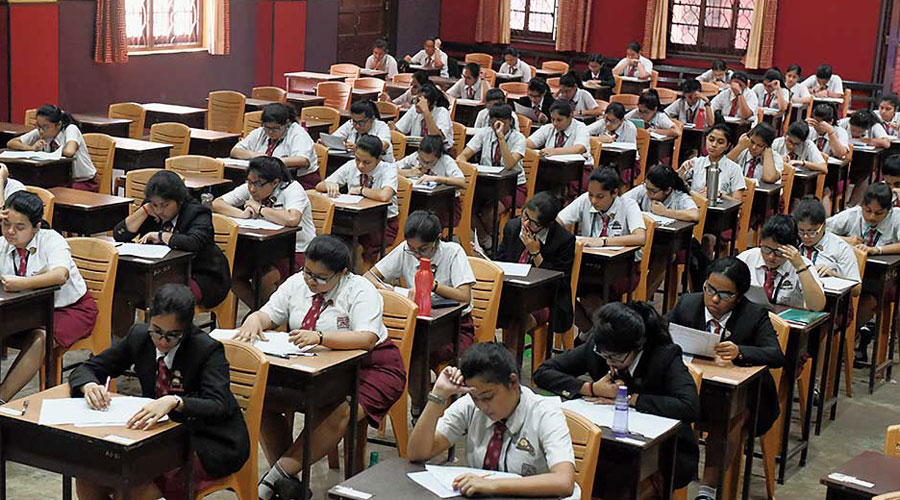Insights into ICSE & ISC Exam 2025 Exam Pattern, Marking Scheme, and Subject Strategies


As the academic year nears its crescendo, students preparing for the Indian Certificate of Secondary Education (ICSE) class 10 and Indian School Certificate (ISC) class 12 exams of 2025 face an essential milestone in their educational journey. These board exams test not just knowledge but also the ability to apply concepts, analyse problems, and communicate effectively.
In this article, we decode the exam patterns and marking schemes of these crucial assessments, and illustrate them with practical examples for better understanding.
ICSE 2025 Exam Pattern
The ICSE exam provides a well-rounded assessment across a broad spectrum of subjects. It balances theory, application, and creative expression to gauge students' overall proficiency.
2. Mathematics: Known for its rigour, the Mathematics paper tests problem-solving and logical reasoning. Questions often progress from foundational concepts to advanced problem-solving, rewarding accuracy and clarity. A common question might involve calculating the area of a composite figure or solving quadratic equations by factorisation. Application-based questions, such as finding the compound interest on a deposit over five years, test real world relevance.
3. English Literature & Language: Students are evaluated on their ability to analyse literary texts and communicate ideas effectively. Structured, concise answers are key to scoring well. For instance, a question on Shakespeare’s Julius Caesar could ask students to explore Brutus’s dilemma, while in the language paper, they might need to write an argumentative essay on the impact of social media.
5. Second Languages (Hindi, Bengali, etc): The focus here is on linguistic proficiency and cultural appreciation, with papers including grammar, comprehension, and creative writing. An example question might involve translating a short passage from English to Hindi or crafting an essay on a festival celebrated in Bengal.
ISC 2025 Exam Pattern
The ISC exam, taken by class 12 students, demands a higher level of analytical and evaluative skills, with marking schemes encouraging critical thinking and depth of understanding across a wide range of subjects.
Marking Schemes: Clarity is Key
The marking schemes for both ICSE and ISC prioritise theoretical exams as well as internal assessments which carry significant weight. For example, a Biology project might involve documenting the biodiversity in a nearby park, while in English, students might deliver a presentation on a Shakespearean play.
How Students Can Approach These Exams
Understanding the pattern and marking criteria can serve as a roadmap for effective preparation:
1. Practice Past Papers: Solve previous years’ questions to familiarise yourself with the format. For example, ICSE Geography papers often repeat the style of questions on climatic regions or soil types.
2. Balance Theory and Application: Emphasise conceptual clarity while practicing problem-solving. For example, ISC Commerce students could attempt mock balance sheet problems to sharpen analytical skills.
3. Focus on Presentation: Avoid overwriting; keep answers concise and structured. A History answer, for instance, should begin with a brief introduction, followed by chronological events, and end with a conclusion.
The ICSE and ISC exams are more than academic milestones; they are stepping stones to a student’s future endeavours. By understanding the exam patterns and marking schemes, students can tailor their preparation to excel. According to Swami Vivekananda, “We must have life-building, man-making, character-making assimilation of ideas." The roots of education might feel bitter but the fruit is sweet. The mind is not a vessel to be filled but a fire to be ignited.
Aditi Chakraborty is the Principal of St Jude's High School, West Bengal, and an accomplished educationist. She is the author of English literature books and model test papers, and has served as a resource person for workshops on English Language Teaching (ELT) and literature in teacher training programmes.